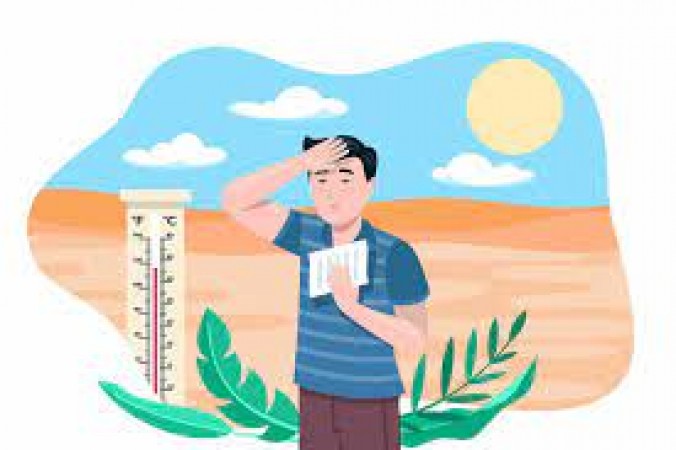
Heatwaves are becoming more frequent and intense due to climate change. These prolonged periods of excessive heat pose a significant health risk, especially to vulnerable populations like the elderly.
Older adults are more susceptible to heat-related illnesses for several reasons. As we age, our bodies become less efficient at regulating temperature. Chronic medical conditions, medications, and a decreased sense of thirst can all contribute to the increased risk during a heatwave.
Heatwaves can lead to a range of health issues for the elderly, including heat exhaustion, heat stroke, and dehydration. These conditions can be life-threatening if not addressed promptly.
Heat exhaustion is a serious condition that occurs when the body overheats. Symptoms include heavy sweating, weakness, cold and clammy skin, a fast but weak pulse, nausea, and fainting.
Heat stroke is more severe and requires immediate medical attention. Symptoms include a body temperature above 103°F, red, hot, and dry skin, rapid and strong pulse, throbbing headache, dizziness, and unconsciousness.
Dehydration can sneak up on seniors during a heatwave. Signs to watch for include dry mouth, dizziness, reduced urine output, and confusion. It's crucial to address dehydration promptly to prevent more serious complications.
Encourage the elderly to stay indoors during the hottest parts of the day, typically between 10 a.m. and 4 p.m. If they must go outside, they should do so in the early morning or late evening.
Air conditioning is one of the most effective ways to stay cool. Ensure that the elderly have access to air-conditioned spaces, whether at home, in a community center, or at a friend or relative’s house.
Lightweight, loose-fitting clothing in light colors can help keep the body cool. Avoid dark colors, as they absorb more heat.
Keeping the elderly hydrated is crucial during a heatwave. Water is essential for maintaining body temperature and preventing dehydration.
Encourage older adults to drink at least eight glasses of water a day. This amount might need to increase during a heatwave, depending on their level of activity and health conditions.
If plain water isn’t appealing, try flavored water, herbal teas, or electrolyte-infused drinks. Avoid caffeinated beverages and alcohol, as they can dehydrate the body.
Fruits and vegetables with high water content can help keep the elderly hydrated and cool. Options include watermelon, cucumbers, strawberries, and oranges.
During a heatwave, lighter meals are easier to digest and can help prevent the body from overheating. Salads, cold soups like gazpacho, and chilled yogurt are excellent choices.
Heavy, hot, and spicy foods can raise body temperature. It’s best to avoid these during a heatwave to keep cool.
Caregivers should closely monitor the health conditions of elderly individuals during a heatwave. Keep an eye on any changes in behavior, appetite, and physical symptoms.
Establish a routine that includes regular hydration breaks, cool showers or baths, and time spent in air-conditioned environments. Consistency can help prevent heat-related illnesses.
Make sure the elderly understand the dangers of heatwaves and know the symptoms of heat-related illnesses. Knowledge is empowering and can help them take proactive steps to stay safe.
Encourage activities that can be done indoors in a cool environment, such as reading, puzzles, or watching movies. These can be both engaging and safe.
If access to a pool is available, gentle water exercises can be a refreshing way to stay active without overheating. Ensure the water temperature is comfortable and supervise as needed.
Consider using cooling towels, fans, or portable air conditioners. These tools can provide additional relief during extreme heat.
Keep blinds or curtains closed during the day to block out direct sunlight. Use fans strategically to circulate air and create a cooler environment.
Ensure that air conditioning units are in good working condition. Avoid setting the temperature too low, as this can be as dangerous as overheating.
Have a plan in place for power outages or air conditioning failures. Know the locations of nearby cooling centers and have a list of emergency contacts ready.
Incorporate foods that are naturally hydrating into meals. Options include lettuce, celery, tomatoes, and bell peppers. These foods can help supplement water intake.
Maintain a balanced diet that includes lean proteins, whole grains, and healthy fats. This ensures that the elderly have the energy to stay active and maintain their health.
Sugary and processed foods can dehydrate the body and should be limited during a heatwave. Opt for whole, natural foods instead.
Use alarms or reminders to encourage regular drinking. This can be particularly helpful for those who have a reduced sense of thirst.
Make drinking water more enjoyable by adding fresh fruit slices or mint. Creating a visually appealing drink can encourage more frequent hydration.
Keep a log of daily fluid intake to ensure the elderly are drinking enough. This can also help identify any patterns or issues with hydration.
Many communities offer programs and resources for seniors during heatwaves, such as cooling centers and transportation services. Take advantage of these offerings.
Encourage family, friends, and neighbors to check in regularly on elderly individuals during a heatwave. A strong support network can provide assistance and peace of mind.
Regular communication with loved ones can provide emotional support and ensure that the elderly are safe and well during extreme heat events.
Taking proactive measures to protect the elderly during heatwaves is crucial. Simple steps like staying hydrated, eating cooling foods, and staying indoors during peak heat can make a significant difference.
Stay informed about weather forecasts and heatwave warnings. Preparation is key to ensuring the safety and well-being of elderly individuals during these challenging periods.
Caring for the elderly during a heatwave is a community effort. By working together and being vigilant, we can help ensure that our older loved ones stay safe and healthy.
How much water and sugar are used in one liter cold drink?
India and Japan Strengthen Health Cooperation, Focus on Digital Health and AI